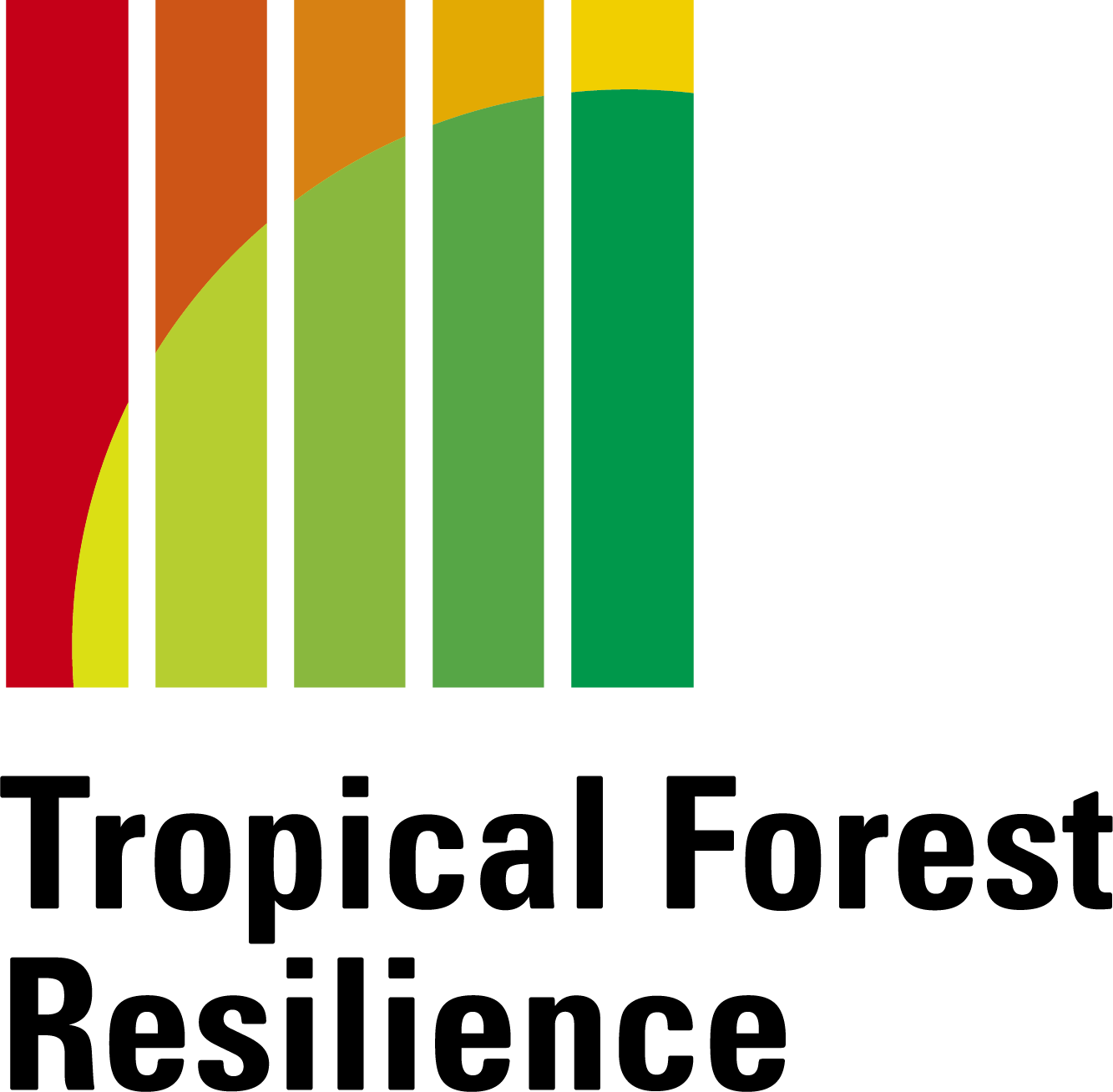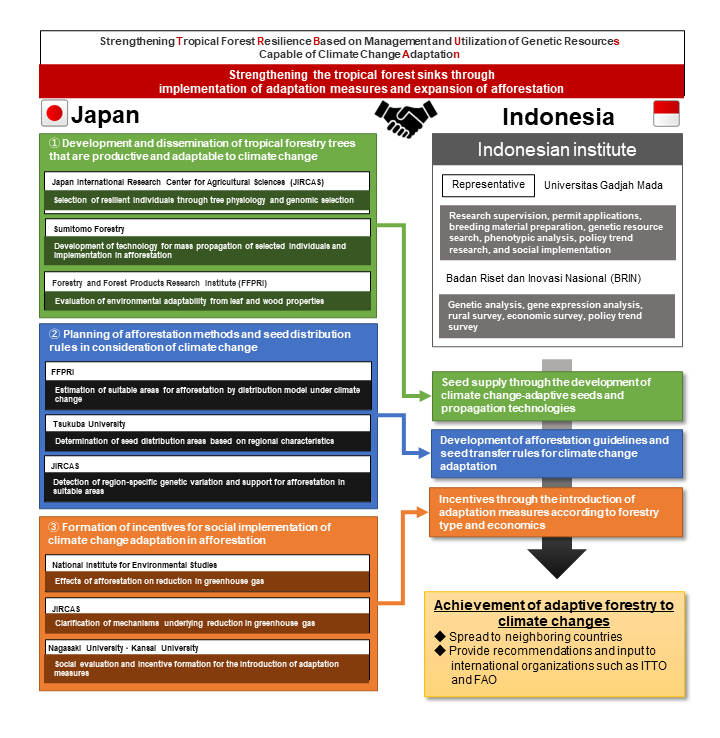About TRuBUSAN
2023.02.24
What’s TRuBUSAN project?
Development and dissemination of tropical forestry seeds and seedlings that are adaptable to climate change and productivity
Approximately 10% of the world's remaining tropical forests are in Indonesia, and about 52% of the country's land area is covered by forests. Tropical forests have been pointed out to be vulnerable to climate change and to achieve stable timber production and sustainable forest management, we will introduce a method called genome selection breeding, which utilizes genome information, for the breeding of forest trees, which has conventionally been considered a time-consuming process, to select seeds and seedlings that can adapt to climate change in a short time. In addition, the selected seeds and seedlings will be propagated in large quantities using clonal propagation technology to promote their widespread use.
Planning of afforestation methods and seed distribution rules in consideration of climate change
In the event of climate change, the environment could be very different from what it is today. In such a case, the growth of forest tree species may deteriorate, and even their survival may be in jeopardy. On the other hand, there may be areas that are unsuitable for growth in the current environment but become suitable under climate change. By predicting such changes in suitable growing areas, we will promote adaptation to climate change in afforestation. In addition, forest tree species with a wide distribution may have different adaptive capacities to the environment in different regions. We will develop rules for seed distribution as a measure to adapt to climate change by taking advantage of these differences in adaptive capacity
Formation of incentives for social implementation of climate change adaptation in afforestation
To achieve the restoration of degraded forests and the expansion of new plantations, we will evaluate the environmental, social, and economic impact of tropical forest restoration and new afforestation projects using seedlings and afforestation technologies to be developed in the above studies. In addition to REDD+, we aim to create international and regional incentives for the restoration and creation of tropical rainforests by establishing certification standards for the use of climate change-adaptive forest tree species in forest certification systems and ESG investments.
Strengthening of the international joint research partnership
Through this research, we will promote mutual exchange and human resource development between Indonesian and Japanese researchers, and establish a high-quality international joint research partnership for forestry research and development.

